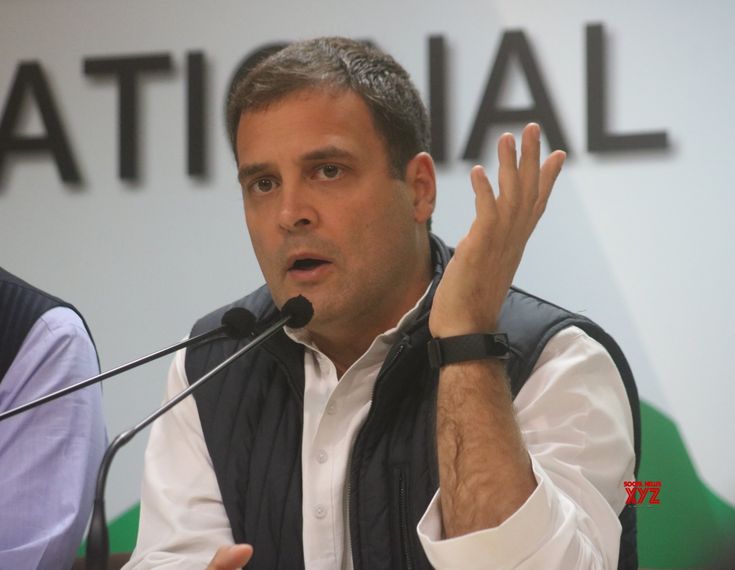In the midst of the dynamic landscape of Indian democracy, the discourse around reservation policies has gained significant traction, prompting former Congress president Rahul Gandhi to amplify his campaign for a caste census. The caste census in India refers to a thorough survey aimed at collecting detailed demographic information about the various caste groups within the population. Its significance lies in facilitating social justice, welfare planning, and equitable resource allocation by providing accurate data on the distribution and socio-economic status of historically disadvantaged groups such as Scheduled Castes (SCs), Scheduled Tribes (STs), and Other Backward Classes (OBCs). Additionally, it can inform electoral policies and ensure fair political representation for marginalized communities. However, the idea of a caste-based census is contentious due to concerns about exacerbating social tensions, logistical challenges, and ethical considerations regarding the classification of individuals based on caste identities. Despite these challenges, proponents argue that such data are crucial for understanding and addressing caste-based discrimination and inequality, providing valuable insights for research, policy analysis, and efforts to promote social inclusion and equality in Indian society.Speaking at the Rashtriya Samvidhan Sammelan (National Constitutional Convention) in Lucknow, convened by the Samruddha Bharat Foundation, Mr. Gandhi emphasized the imperative for a transformative shift in the political sphere, both within his own party and across the broader spectrum.
Rahul Gandhi, as a scion of the illustrious Nehru-Gandhi political lineage in India, has long espoused a vision centered on inclusive governance and the equitable representation of all segments of society. As a prominent figure in Indian politics, he has consistently championed the causes of social justice and democratic principles.
While acknowledging the commendable achievements of the Constitution, Mr. Gandhi has also shed light on its inherent limitations. He aptly pointed out that despite its lofty aspirations, the benefits of the system have not uniformly reached every stratum of society. This glaring reality is particularly evident when examining the underrepresentation of significant demographic segments, including backward communities, Dalits, Tribals, minorities, and economically disadvantaged sections within the forward castes, across crucial domains such as media, judiciary, bureaucracy, and corporate governance.
Mr. Gandhi’s advocacy for a caste census stems from his belief in the pursuit of truth—a genuine reflection of India’s social fabric. In contrast to assertions from BJP leaders regarding the potential cessation of reservation policies, Mr. Gandhi has reaffirmed the Congress’ unwavering commitment to upholding these measures, underlining that they are the collective voice of 90% of India.
In juxtaposition to Prime Minister Narendra Modi’s leadership style, Mr. Gandhi has depicted him as embodying a “21st-century monarch,” while positioning himself as the “voice of the people,” deeply attuned to their experiences and concerns. With conviction, Mr. Gandhi has expressed his belief that Mr. Modi’s tenure will not witness a resurgence, a sentiment echoed in his campaign rhetoric.
In a rare display of introspection, Mr. Gandhi has acknowledged the past missteps of the Congress party, signaling a clarion call for transformation. While specific strategies were not delineated, his acknowledgment elicited resounding applause, indicating a palpable recognition within the party of the imperative for adaptation and evolution.
Transitioning to the broader contours of Mr. Gandhi’s political vision, his manifesto underscores the primacy of inclusive governance and equitable representation. Firmly rooted in the principles of fairness, opportunity, and social justice, his vision resonates with the essence of democratic ideals.
Key facets of Rahul Gandhi’s manifesto encompass comprehensive reforms in education, healthcare, employment, social welfare, and environmental conservation. These initiatives are meticulously crafted to ensure equitable access, uplift marginalized communities, and foster sustainable development.
At its essence, Mr. Gandhi’s vision serves as a reaffirmation of democracy’s pledge—the promise of inclusivity, opportunity, and progress for all. Navigating the intricate terrain of governance, he advocates for a diplomatic approach founded on empathy, comprehension, and collaborative engagement. As India embarks on its democratic voyage, Mr. Gandhi’s vision stands as a poignant reminder that, ultimately, the enduring triumph of democracy is paramount.
